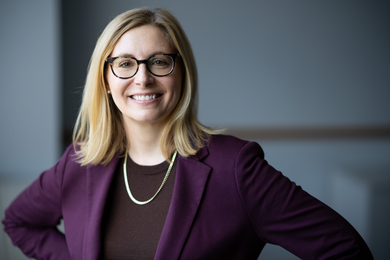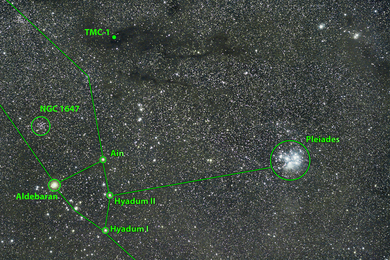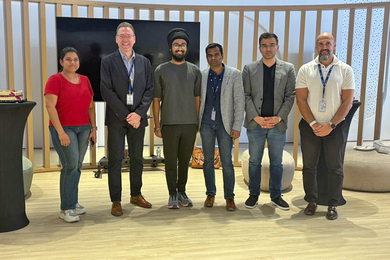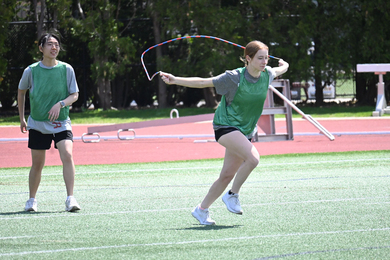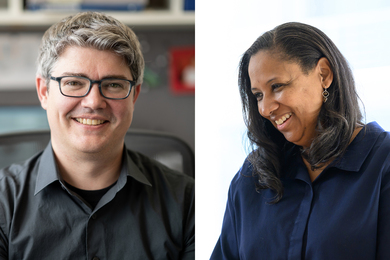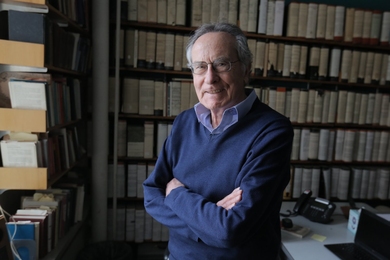MIT draws students from all over the world, each with a diverse and unique cultural background and identity. The Office of Multicultural Programs at MIT, which advises approximately 70 culturally focused student clubs, works to raise awareness and bring together these students. One of the office's many programs is the annual Multicultural Conference (or MC^2), which was held Feb. 22-23.
The goal of the annual conference is to facilitate honest, open and interactive dialogue about the cultural climate at MIT. To do so, the conference brings together students across race, ethnicity, gender, religion, socioeconomic status, sexual orientation and every other aspect of cultural identity. All MIT undergraduate and graduate students are invited to participate.
“The group of students that attended the conference had no previous affiliation with the office,” said La-Tarri Canty, assistant director of the Student Activities Office and head of Multicultural Programs. “They seemed very quiet at the beginning of the conference. As we progressed, they did exactly what I asked and I witnessed bonds taking place. They begin to realize that the thoughts, feelings and emotions that they were feeling are normal and that they are not alone.”
A student committee, representing a variety of programs and cultures from the MIT community, planned this year’s conference with the theme of “Second Thoughts on First Impressions: Cultural Competency at MIT.”
The conference, originally scheduled for Feb. 8-9, but postponed due to the blizzard, was held at the MIT Endicott House in Dedham. In total, 27 students attended the event.
This year’s keynote speaker was Stu Schmill ’86, MIT’s dean of admissions. His talk focused on affirmative action at MIT. Other speakers included members of both the MIT and greater Boston community, who addressed subjects such as the impact of socioeconomic status on the student experience, the role of religion in community building and culture in media.
Student attendees responded positively to the event. On the post-conference evaluation, one student wrote, “I have a much better sense of how I am not alone at MIT.”
When asked if they would recommend MC^2 to their peers, a student attendee answered, “Yes. It is a safe environment for issues that are usually ignored or concealed on campus yet still very relevant and intellectual.”
According to Canty, the goal of the conference was to do more than just encourage dialogue over the weekend, but instead to keep conversations about diversity going on beyond the conference. Canty hopes students will implement the things they learned and bring the new perspectives gained into their lives at MIT and beyond.
“We just need to continue to provide spaces for them to discuss these issues,” Canty said. “I am grateful that I work with students that are solution oriented. They challenged themselves and worked through some very personal and sensitive issues, and they left the conference with a desire to impact change on campus.”
The goal of the annual conference is to facilitate honest, open and interactive dialogue about the cultural climate at MIT. To do so, the conference brings together students across race, ethnicity, gender, religion, socioeconomic status, sexual orientation and every other aspect of cultural identity. All MIT undergraduate and graduate students are invited to participate.
“The group of students that attended the conference had no previous affiliation with the office,” said La-Tarri Canty, assistant director of the Student Activities Office and head of Multicultural Programs. “They seemed very quiet at the beginning of the conference. As we progressed, they did exactly what I asked and I witnessed bonds taking place. They begin to realize that the thoughts, feelings and emotions that they were feeling are normal and that they are not alone.”
A student committee, representing a variety of programs and cultures from the MIT community, planned this year’s conference with the theme of “Second Thoughts on First Impressions: Cultural Competency at MIT.”
The conference, originally scheduled for Feb. 8-9, but postponed due to the blizzard, was held at the MIT Endicott House in Dedham. In total, 27 students attended the event.
This year’s keynote speaker was Stu Schmill ’86, MIT’s dean of admissions. His talk focused on affirmative action at MIT. Other speakers included members of both the MIT and greater Boston community, who addressed subjects such as the impact of socioeconomic status on the student experience, the role of religion in community building and culture in media.
Student attendees responded positively to the event. On the post-conference evaluation, one student wrote, “I have a much better sense of how I am not alone at MIT.”
When asked if they would recommend MC^2 to their peers, a student attendee answered, “Yes. It is a safe environment for issues that are usually ignored or concealed on campus yet still very relevant and intellectual.”
According to Canty, the goal of the conference was to do more than just encourage dialogue over the weekend, but instead to keep conversations about diversity going on beyond the conference. Canty hopes students will implement the things they learned and bring the new perspectives gained into their lives at MIT and beyond.
“We just need to continue to provide spaces for them to discuss these issues,” Canty said. “I am grateful that I work with students that are solution oriented. They challenged themselves and worked through some very personal and sensitive issues, and they left the conference with a desire to impact change on campus.”

